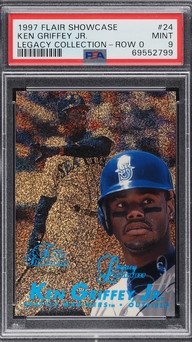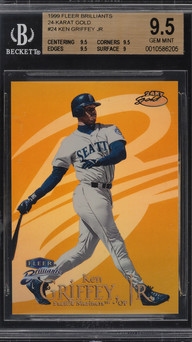What Sports Cards Should You Collect?
- Apr 3, 2025
- 5 min read
Please note that this site contains affiliate links, and The Smarter Collector may earn a commission if you make a purchase through these links. This comes at no additional cost to you and helps support the site so we can continue to provide valuable content. Thank you for your support!
Introduction
Standing in front of thousands of sports cards – whether at a card show, local shop, or scrolling through an online marketplace – can be overwhelming. With countless players, teams, sets, and parallels spanning more than a century of sports history, the question "What sports cards should I collect?" becomes surprisingly complex.

Today's collecting landscape offers more choices than ever before. From vintage tobacco cards to modern autographed rookie patches, from budget-friendly base cards to five-figure rarities, the options seem endless. New collectors often freeze in the face of these choices, while experienced collectors sometimes find themselves wanting to refocus their collection - the Paradox of Choice in Sports Cards is real.
The truth is, the right sports cards to collect depends entirely on your personal goals and interests. There's no universally "correct" answer – the best collection is the one that brings you enjoyment and aligns with your reasons for collecting in the first place.
This guide will help you narrow down your options and find your collecting focus by examining your motivations, exploring different collecting approaches, and providing a framework to make decisions that will lead to a collection you'll truly enjoy.
Part 1: Start With Your "Why"
Before deciding what sports cards to collect, it's essential to understand why you're collecting in the first place. Your motivation will naturally guide what kinds of cards will bring you the most satisfaction.
Personal Enjoyment and Passion
Many collectors simply enjoy the cards that represent their favorite sports, players, or teams. If you're collecting purely for enjoyment, focus on cards that make you smile when you look at them. This might mean collecting every card of your childhood hero, cards with stunning photography, or cards representing memorable sporting moments you witnessed.
Key consideration: What aspects of sports (Or culture) bring you the most joy?
Investment Potential
Some collectors approach sports cards as alternative investments. If this is your primary motivation, your focus should be on cards with proven track records or cards you have conviction in growing over time. This typically means rookie cards of star players, low-population vintage cards in high grade, and low-numbered modern cards of established superstars.
Key consideration: Are you prepared to research market trends and player trajectories?
Historical Appreciation
Sports cards serve as tangible connections to sports history. History-focused collectors often pursue cards that represent significant eras, milestone achievements, or the evolution of the hobby itself. This might mean collecting cards from specific historic seasons, complete vintage sets, or cards representing breakthroughs in design or technology.
Key consideration: Which eras or historical aspects of sports fascinate you most?
Nostalgic Connection
Many collectors return to the hobby seeking to recapture memories from their youth. If nostalgia drives your collecting, focus on cards from the era when you first discovered sports or collecting. This might mean completing sets you couldn't afford as a child or focusing on players who dominated an era of sports you love or appreciate the most.
Key consideration: What period in your life created your strongest sports memories?

Your answers will provide important clues about what you should collect.
Part 2: Major Collecting Approaches
Once you understand your motivations, consider these proven collecting approaches collectors have enjoyed for generations.
Player-Focused Collections
The approach: Dedicate your collection to one player or a small group of players, collecting their cards across different years, sets, and card types.
Best for collectors who: Have strong player allegiances, enjoy watching specific players' careers unfold, or appreciate the focused nature of player collections.
Examples:
All rookie cards of Hall of Famers in your favorite sport
Every card ever produced of your favorite player (Master Player Collector)
Cards representing a specific position (quarterbacks, point guards, etc.)
The rookie card of every MVP winner in a specific league
Tip - Learn to pair cards together to build out something special or check out our Player Profiles to start learning about your favorite player's most notable cards.
Team-Based Collections
The approach: Collect cards representing a specific team, either from particular eras or throughout the franchise's history.
Best for collectors who: Have stronger team loyalty than player loyalty, enjoy the continuity of franchise history, or appreciate how team collections span generations.
Examples:
All-time team sets featuring the greatest players from each position
Complete team sets from championship seasons
Cards of every player who ever played for your team
Cross-sport collections of all teams from your hometown
Organizational tip: Team collections can be arranged chronologically to show a franchise's evolution or by position to create an all-time depth chart.
Set Building
The approach: Complete specific card sets, either from single years or across multiple releases.
Best for collectors who: Enjoy the structured nature of set completion, appreciate the satisfaction of filling checklists, or value the comprehensive snapshot of an era that complete sets provide.
Examples:
Flagship sets from your birth year
Complete runs of certain insert sets across multiple years
Vintage sets representing significant eras in sports history
High-grade examples of classic sets
Consideration: Decide whether you're collecting for completion or condition. Some collectors focus on simply completing sets regardless of condition, while others pursue specific grades or eye appeal.
Insert and Parallel Hunting
The approach: Focus on special cards within larger sets, such as limited parallels, insert series, or cards with special design elements.
Best for collectors who: Appreciate unique design features, enjoy the thrill of rarity, or prefer cards that stand out from standard issues.
Examples:
Refractor rainbows of specific players
Complete parallel sets (like all red-bordered cards from a specific release)
Thematic insert collections (cards featuring specific achievements or designs)
Serial-numbered cards falling below certain print runs
Theme building: Many successful insert collectors unite their collections under themes like "cards showing players in action" or "cards featuring stadium backgrounds."
Niche Collecting
The approach: Specialize in overlooked or unconventional card categories that align with specific interests.
Best for collectors who: Enjoy standing apart from mainstream collecting trends, have specific knowledge areas, or want to build unique collections without competing with larger buyer pools.
Examples:
Food-issue cards (cereal boxes, pizza companies, etc.)
Regional releases from specific geographic areas
Cards featuring specific uniform styles or equipment
Error cards and variations
Expert insight: Niche collecting often allows for building significant collections at lower price points while developing specialized expertise few others possess.
Conclusion
The best sports cards to collect are the ones that bring you the most satisfaction. Whether you’re just starting out or refining your approach, remember: the most rewarding collections reflect your personal interests and motivations.
Your “why” and “what” will evolve over time. You might start chasing sets, only to realize it was a single player who drew you in. Or you may build a diverse collection, then trade it all for your holy grail. That’s part of the journey.
If I had one piece of advice for new or returning collectors, it’s this: be patient, and stay curious. There’s a whole world of cards to explore. Some buys you’ll celebrate. Others you’ll second-guess. But each one teaches you something.
Build your collection your way. Make it fun. Because the perfect collection isn’t about value or completion, it’s about how it makes you feel.







































